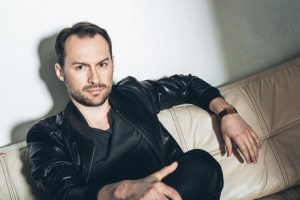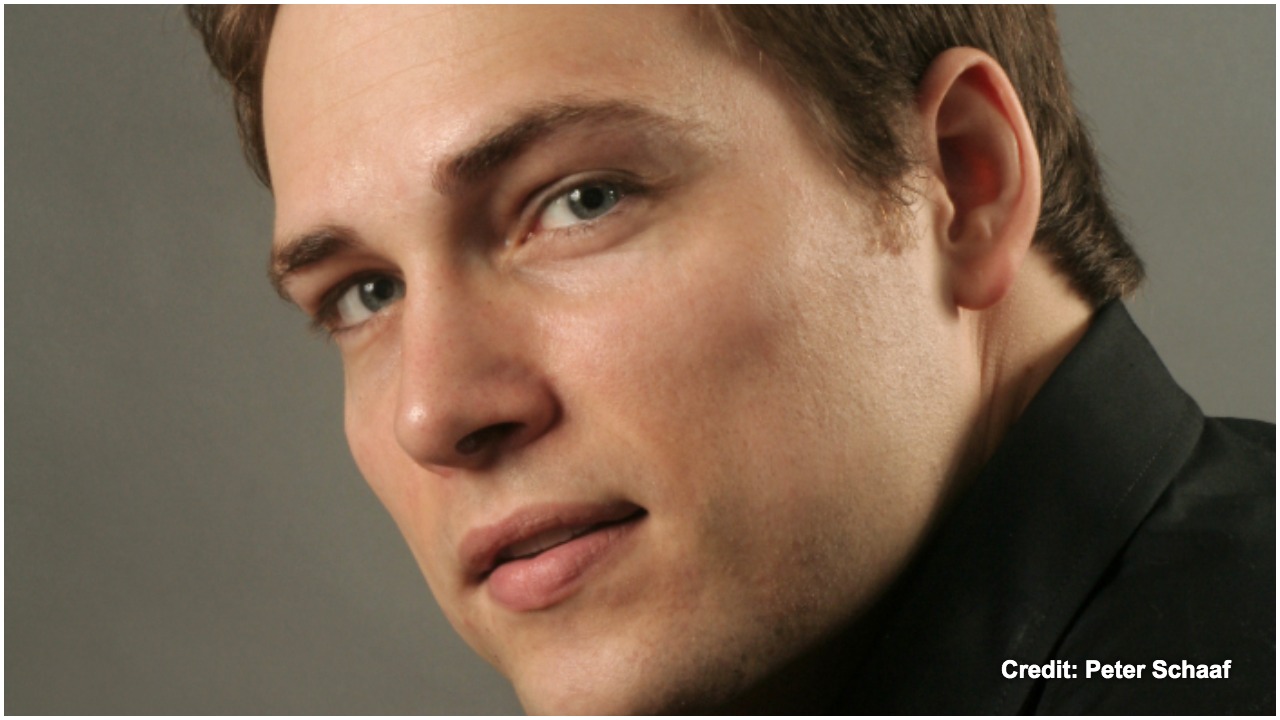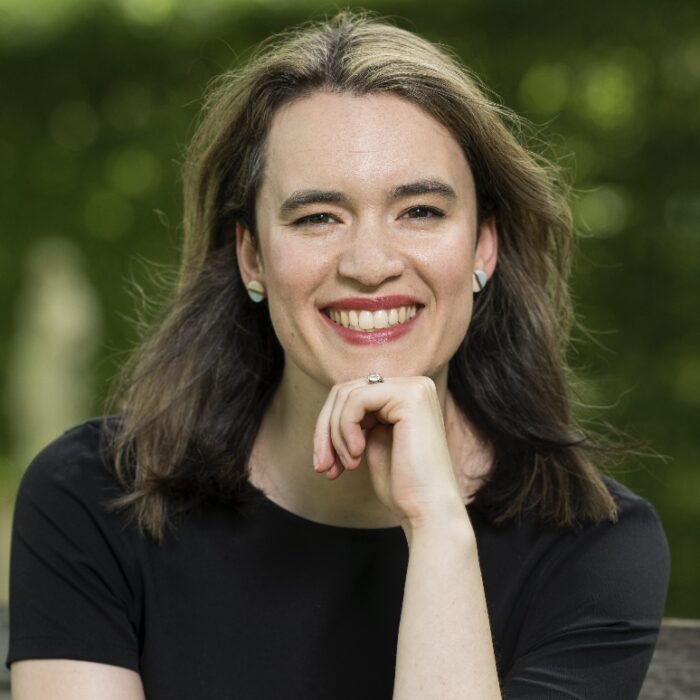
Q & A: Tenor Edgaras Montvidas on COVID-19, New Operas, & Picking the Right Repertory
By Ona JarmalavičiūtėEdgaras Montvidas, one of the most famous Lithuanian tenors, took 2020 as a bouquet of various experiences. Living in London since 2001 and working at the Covent Garden Opera House, he was a soloist at the Frankfurt Opera House between 2003-2006 and began last year’s season with his debut at the world premiere of Christian Jost’s “Egmont.”
But what was anticipated to be a golden season for his career turned to dust. When the circumstances changed, the soloist settled in an apartment in the Old Town of Vilnius. Though he should currently be working in Milan and preparing for his debut on the stage of “La Scala,” Edgaras spends his free time walking in the woods, listening to Icelandic electronic music, and bonding with his neighbors in the stairwell on the subject of interchangeable light bulbs.
Despite the losses, in addition to successful performances at Lithuanian music festivals and the Zurich Opera, Barber’s opera “Vanessa”–in which Montvidas played the role of Anatoly–was voted the best record of the year at the BBC Classical Magazine Awards.
In this interview, Montvidas shares his experiences of the last year: both the losses and the wins.
OperaWire: Your past year has been busy with new repertoire, premieres and concerts. A large number of projects have fallen short after their first performance, however. How did you adapt to all this?
Edgaras Montvidas: The pandemic caused a full range of emotions and fundamentally halted the existence of the performing arts sector. As early as the beginning of the year, singing at the Vienna Theater, I heard about a pandemic in China that seemed, like the Ebola virus, to not be reaching us. I later went to Paris to rehearse for concerts dedicated to Beethoven’s anniversary. I remember how the conductor and all my colleagues were unconcerned about the looming pandemic. Everything went on in a dreamlike state of normality.
When I returned from Paris to London I went straight into a government-mandated quarantine–quite the contrast! I did not realize how serious things were becoming then, nor how strictly that quarantine was being enforced. I think I was one of the last people to visit the Royal Opera House, and I was specifically asked to leave! I naively hoped that nothing would happen if I went alone, but I heard “Mister Montvidas!” announced through the speakers and I had to depart and return to my isolation.
At first it seemed the lockdown should end very quickly, after a couple of weeks. But all the plans began to crumble like a house of cards, as did my performing opportunities. I was meant to go to Boston to sing with the Boston Symphony Orchestra, and I had been very-much anticipating those concerts. My meeting with the famous British composer Thomas Ades was to have taken place there as well. I had to come to terms with the fact that this year all performers were experiencing some form of loss.
I am a freelance singer: my income depends entirely on commissions. I had to calculate costs and savings and not let myself sink into despair. I found an instrument, created a daily routine and tried to spend my days living with as much normalcy as possible. As a visiting professor in Lithuanian Music and Theater Academy, I started teaching remotely and preparing for future roles, not knowing if I would ever sing them on stage. Living with the persistent unknown was the hardest part. In the spring I would joke that the only thing I could plan was what I would eat for dinner. No-one even knew what would happen next week.
Back in January 2020, I bought an apartment in Vilnius Old Town which I could not visit until half a year later. It was only as the situation began to ease in June that I could confidently get ready and leave for Vilnius. Lithuania was one of the few countries in the world that enjoyed concerts that summer. I was lucky in that regard, and managed to find work. July was an especially difficult month. In the space of only a couple of weeks I sang a huge concert in the courtyard of the Palace of the Rulers at the Midsummer Festival, a concert at the Pažaislis Festival and the newly established Paežeriai Festival. I also performed in three “Faust” performances in the Vilnius University, sang in the presidency and had many other, varied performances. Everything took off so suddenly and with such intensity that I needed a dose of minerals and vitamins to lift the load! I left for my engagement with the Zurich Opera immediately after July. I did not know if it was worth it or if the performance would even happen. I decided to risk it, to drive drive to Switzerland and rent an apartment. I was lucky again: my debut at the Zurich Opera was a great success.
Autumn reminds me now of the film “Catch Me if You Can:“ I was preparing to perform, singing in concerts, and being constantly chased by the Second Wave. Only just after I finished singing in Zurich the theater was closed by the pandemic. It happened again with the closure of the National Symphony Orchestra in Vilnius, which shut its doors immediately after my performance. The opera and ballet theater likewise closed after only a few performances of “Madama Butterfly.” I am so grateful that I could manage to accomplish even a small number of projects.
It would be selfish to compare one’s own problems to those who have suffered real loss this year. While everyone sees the pandemic from their own perspective, my canceled performances have been a bit of a hassle and frustration for me. It is important that we do not absolutize our careers. After this year I feel more adaptable, more capable of spontaneity and flexibility, and less attached to my old expectations and ideas of what the future was going to be.
OW: I hear that you have learned to accept the unknown, to endure paradoxical situations. How did this adaptation change your perception of work?
EM: It was a career in opera itself which taught me many attributes of these things. The tense lifestyle, the lack of steadiness and working with colleagues whom you do not always manage to find common ground. This profession requires a strong nervous system and the ability to maintain internal balance and stay calm. As an individual I am sensitive, but when it comes to my work my emotions are often stable and I tackle challenges rationally.
OW: I have heard that music helped calm most musicians over the past year. What helped you?
EM: During quarantines, I lack creative stimulus. Currently, creativity only reaches me from books, music, or television. A real Christmas miracle was being able to participate in the joint project of the Lithuanian National Museum of Art and the LRT “30 Works, 30 Creators, 30 Weeks.”
On that occasion, the whole art gallery was open for me alone, and together with the curator we went around the exhibitions. I felt that I had really needed art, and been sorely lacking. Attending exhibitions, performances and concerts was as much a part of my daily routine as breakfast and brushing my teeth. When that is no longer possible one must look for artistic stimuli in other areas. Like everyone, I discovered the benefits of walks–after I talk to you today I’ll go to the forest, in fact. I also listen to music, from Icelandic electronics to baroque or Debussy. There is also a lack of communication with friends. One would have thought moving to Vilnius would have been a very good opportunity to meet new people. I have been happy, however, to participate in the activities of my apartment’s community, such as hallway renovations and light bulb replacement.
I try to stay mentally active and creatively realize myself. I am currently preparing to record a recital with Lithuanian Radio and there are some small performances online that I am involved with. I am looking for balance: not wasting time and not overwhelming myself all at once. If I want to lie on the couch, then I lie. I take on the jobs that make me happy and are soothing. I have also observed myself–the waves of emotions one experiences on their own in isolation–and I will hopefully learn from them. Working with yourself will definitely benefit yourself in the future. A pandemic will teach us all many lessons: all crises ultimately bring benefits to society.
OW: You mentioned many online music activities: you will record a recital, teach vocals, listen to music. Has this year allowed you to gain a deeper understanding of the impact of live music and its relationship with modern technology?
EM: I am sure that living art is meant to be experienced live. Even the cinema is not in vain when it is shown in theaters whose smell and darkness we all long for. But what can we say about concerts in these times? Musical records remind me of snacks in times of famine: it is better than nothing. Musicians seem to be constantly trying to remind listeners that they do not just sit idle in quarantine; rather that they stay active, creating and adapting to the situation.
There were also some great new initiatives in this year; even a new TV show, “Wintering with Opera”, in which I was happy to participate. Operas such as Barber’s “Vanessa” were staged as videos even in 2019, with appropriate lighting and the other necessities for film. This opens the door for new opportunities. Perhaps 2020 will serve as an experiment, testing to see if a person is in need of living art or if it is enough to see it on screen.
I remember that, after the 1991 Blockade and the withdrawal of the Soviets, a lot of different spiritual gurus and sects appeared in Lithuania. People were longing for a spirituality that they had not been able to have for a very long time. The renaissance of theaters also took place when people were lacking spiritual experiences. Current discourse aptly surrounds health and the economy, but the crisis is no-less dangerous for the human spirit. I hope that when the restrictions end everyone will return to the halls. I believe that art will become a kind of cure for what we have suffered, that it will be able to help people and that people will still need it.
OW: Do you have a personal role preparation process? What does it look like under quarantine conditions?
EM: I spent 20 years on stage and discovered my way of preparation through those years of experience. Prior to quarantine I used the Royal Opera House in London. After my internship, I was continuously invited to continue my studies under the tutelage of excellent language, vocal and style teachers. While living in London I worked tirelessly within the theater.
Now everything has changed and today I am alone. There is a lot of other work besides learning the material. You need to translate the text, listen to the recordings, read as much literature and have as much information as possible. Then you keep singing, ‘implanting’ the role on your voice, learning it by heart. You must be fully prepared when you come to the rehearsals.
I am glad that in recent years my repertoire has expanded and I am getting more interesting roles, not just the lyrical tenor’s usual remit of ‘lovelorn tortured young person who loves, hates, cries, and throws about their money.’ In recent years, I have performed Dimitrijus in the opera “Boris Godunov.” With makeup and a wig, I was physically transformed into a broken, spiritually undermined person. The role embodied in Stravinsky’s opera “The Rake’s Progress” was also the whole spectrum of psychological colors. Just before the second quarantine I also sang in the beautiful production of director Anthony Minghella’s “Madam Butterfly.”
I am currently preparing for Mozart’s opera “La clemenza di Tito.” The Covent Garden Theater has entrusted me with the main role of Tito. I am also looking forward to my first Don Jose in “Carmen,” at the Strasbourg Opera. Next year I should also be involved in a very interesting project that combines theater and dance with the music of Monteverdi. This will allow me to touch upon the baroque music which I love and listen to so much. All you have to do is wait patiently for the performances.
OW: How do you choose roles?
EM: Choosing the right repertoire is a cornerstone of a singer’s long and successful career. Very often choosing the wrong repertoire will hurt the voice. Of course, there are voices like Violeta Urmana’s, who can sing everything; soprano, mezzo-soprano, and both lyrically and dramatically. But there are only a few artists in the world with such unique voices. There are usually certain categories of voice and the beauty of the voice is revealed while the singer is standing on the stage.
OW: What helps one to know, to self-assess one’s voice?
EM: The voice is a part of the body and changes over the years. With this changes also the repertoire. I have probably said goodbye to completely lyrical roles and operas like “Cosi Fan Tutte.” There was a time when I often sang Lenski from “Eugene Onegin.” At the end of the season, I found a cartoon featuring the singer. He approaches the director of the opera house and asks for a new role, because, like Lenski, who is constantly shot and hit on stage, he is worn out. Each role you take broadcasts what repertoire you are able to perform. We will see what roles I will be offered after I premiere my Don Jose.
OW: How do things change when singing modern opera?
EM: The contemporary repertoire provides an opportunity to meet the composer, who is the first to sing their music. The singer can convince the composer of their own interpretation thanks to their ability to persuade. The roles often look like a ‘connect the dots’ drawing which the singer will color with their voice. You become both a performer and a creator all at the same time.
I was very impressed by the work of the director Christian Jost, in whose “Egmund” I played the titular role. After the premiere the composer said “Now that you have sung this role, I want to change the score so that others may sing like you in the future.”
OW: As a performer, how much creative freedom do you have in traditional and contemporary opera productions?
EM: The most important thing in any opera is the dialogue between the director, the conductor and the performer. There are no well-established interpretations and traditions for modern opera music. It is down to you to bring your interpretation of this new role to life. Every year, I collaborate with a record label based in France and Venice, which specializes in romantic French opera. They discover and revive forgotten operas. As we create the first records, we become the first interpreters of these pieces.
OW: Is it scarier when there is no previous interpretations to draw from?
EM: It is much more fun for me to be a pioneer, and there is never truly nothing that we can draw from: the traditions of singing and the rules of classical music remain. Of course, there are all kinds of operas these days, because this is a very wide genre. Operare means doing and making: opera is an amalgam of the arts.
OW: You have been living in the opera world for over 20 years. You traveled and discovered a lot during this time. Is opera as a genre clear to you today? Or are you still sometimes surprised by hidden, undiscovered things?
EM: The opera is a very wide ocean and has many unvisited islands. Music is the strongest emotional stimulus for a person: it can make you laugh just as easily as it will move you to tears. Opera is a synthesis of all the arts. It is therefore not surprising that it has inexhaustible artistic possibilities. With each generation of directors, even operas that have been staged hundreds of times before stand a chance of being revived as something totally new. As a singer I am always very interested in participating in endless discoveries: in both the productions of classical operas and new music.


